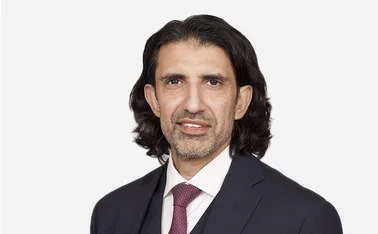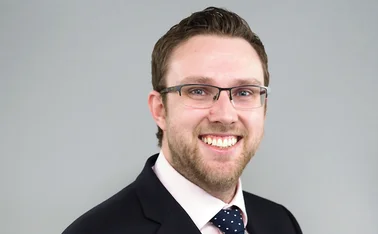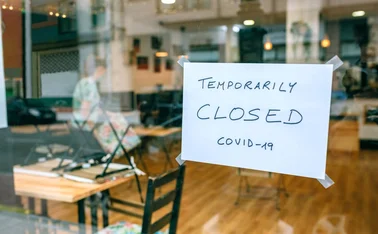
Post Europe: View from the Top: Spanish accident insurance

As far as insurance is concerned – and particularly accident cover – the economic situation is having a major effect on premium levels.
Overall, it is fair to say that the claims rate in the accident sector has performed well in recent years and has even begun to improve. However, this encouraging performance could be jeopardised in the future if the current economic situations brings premium reductions taking place on policy renewal.
The construction industry is close to a standstill and so the claims rate in the sector has diminished, as has all other activity. In the Madrid region, for example, the claims rate has dropped by almost 1000 accidents - including minor, serious and fatal - in each of the first three months of 2011, compared with the same period of 2010.
Material decrease
A material decrease has also been seen in the Balearic Islands in the services sector, which saw a 25% drop between 2007 and 2010, while in Castilla-La Mancha and Navarra the decrease in this sector was registered at 14% and 6.7%, respectively.
Evidence of pressure on premium quotations is clear from the widely differing levels of premium being proposed for the same risk. What has become of actuaries? Very recently we saw that the rate quoted per employee for the same risk ranged between €39 and €14 depending on the carrier.
"Evidence of pressure on premium quotations is clear from the widely differing levels of premium being proposed for the same risk."
Increased pressure
There is also pressure in the construction sector where quotations now vary. For example, last June, we were asked to cut a €2 200 annual premium for a construction company, which had claims for €25 000 and for €10 000. We also have been asked to quote a €20 000 annual premium to cover the employees of a services sector company with 26 sites and an average of three-four claims a year when the insurance payout in the case of death is €19 000.
Can security companies pay a lower premium per employee than a museum would? We seem to have lost a certain amount of rigour in terms of quotes.
Reducing premiums
This problem affects all insurers as in the current situation, all professionals and businesses have to make efforts to increase or at least maintain production, and reducing premiums appears to be the only way to win business.
At the end of 2010, a company agreed to adapt its policy according to the client's request. This stated that "any exclusion which is not expressly cited in the collective agreement shall take precedence over any exclusion expressly cited in the policy"; in this case, the only exclusion expressly cited in the collective agreement referred to participation in official motor sports competitions, so by accepting the request, the insurance company is forced to pay for virtually all claims. And the broker is not the one to blame.
"The insurance company is forced to pay for virtually all claims. And the broker is not the one to blame."
Bleak Outlook
From conversations with our colleagues in the sector, our concerns about premium levels are broadly shared, but that the situation looks unlikely to improve for the moment.
The consequence of all this is that brokers and insurers reduce premiums or agree to charge virtually no commission in order to retain clients. The same thing is happening in state tenders; to win contracts, companies have to give a discount on the previous year's premium, increase sums insured and extend the cover provided by a policy which either has an extremely tight or even "abnormally low" premium. This is sometimes accepted by the policyholder, when a few years back it would not have been.
A step too far
It's a price driven market. We recently heard of a broker who went to a meeting with a potential client. When he arrived, he saw that the client had already highlighted the premium shown on the policy. The client said: "If you could get the premium down, we would award you the contract." And that is all that was discussed during the meeting.
This crisis has been detrimental to all economic activities in Spain, including the insurance industry, and the situation described above is not going to change, at least for several years to come, until the economic recovery gathers momentum.
Carlos Ballesteros is head of personal accident insurance for Markel International España
Only users who have a paid subscription or are part of a corporate subscription are able to print or copy content.
To access these options, along with all other subscription benefits, please contact info@postonline.co.uk or view our subscription options here: http://subscriptions.postonline.co.uk/subscribe
You are currently unable to print this content. Please contact info@postonline.co.uk to find out more.
You are currently unable to copy this content. Please contact info@postonline.co.uk to find out more.
Copyright Infopro Digital Limited. All rights reserved.
As outlined in our terms and conditions, https://www.infopro-digital.com/terms-and-conditions/subscriptions/ (point 2.4), printing is limited to a single copy.
If you would like to purchase additional rights please email info@postonline.co.uk
Copyright Infopro Digital Limited. All rights reserved.
You may share this content using our article tools. As outlined in our terms and conditions, https://www.infopro-digital.com/terms-and-conditions/subscriptions/ (clause 2.4), an Authorised User may only make one copy of the materials for their own personal use. You must also comply with the restrictions in clause 2.5.
If you would like to purchase additional rights please email info@postonline.co.uk








